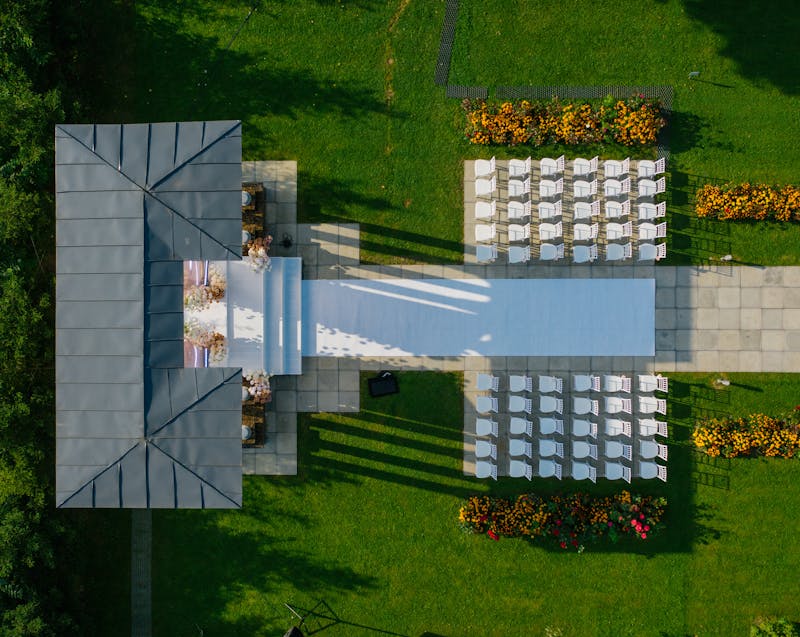
- Choosing event venues that offer day-of coordination ensures smoother execution, less stress, and better vendor management.
- Always clarify what the coordinator’s role includes—some handle only timelines, while others oversee setup, décor, and troubleshooting.
- Meet the on-site coordinator before booking to assess their professionalism, communication style, and experience.
- Review contracts carefully to confirm inclusions, payment terms, and backup coordinator arrangements.
- Schedule pre-event meetings and walkthroughs to finalize timelines and prevent last-minute issues.
- Treat your coordinator as a partner—share detailed plans, stay communicative, and trust their expertise on the event day.
- Booking a venue with built-in coordination is both a time-saving and cost-effective choice that leads to a seamless celebration.
Planning an event, whether it’s a wedding, corporate gala, or milestone celebration, can feel overwhelming. Between managing vendors, coordinating timelines, and handling last-minute changes, the pressure often builds up as the big day approaches. That’s why choosing event venues that offer day-of coordination can be one of the smartest decisions you make. A venue with built-in coordination services not only simplifies logistics but also ensures that everything runs seamlessly from start to finish.
This comprehensive guide walks you through a detailed checklist for booking a venue with day-of coordination, helping you make informed decisions every step of the way.
1. Define Your Event Vision and Needs
Before searching for a venue, it’s essential to identify what kind of experience you want to create. Your vision will influence every decision—from the size of the venue to the type of coordination support you’ll need.
Start by clarifying your goals:
- Event type: Is it a wedding, product launch, conference, or private party? Different events demand unique layouts, logistics, and coordination levels.
- Guest count: Estimate the number of attendees to narrow down venue sizes.
- Style and atmosphere: Do you prefer something classic and elegant, or modern and minimalist?
- Budget range: Establishing a budget early helps you filter venues that align with both your financial plan and expectations.
- Date flexibility: Popular venues often book months in advance; having alternate dates increases your chances of securing your ideal space.
Checklist:
- Budget defined with a clear maximum limit
- Estimated guest count confirmed
- Event date and backup dates identified
- Preferred design, theme, or ambiance established
- Accessibility, parking, and accommodation needs noted
2. Shortlist Venues That Offer Day-of Coordination Services

Once your vision is clear, start shortlisting venues that include coordination services as part of their package. Many modern venues recognize how valuable this feature is and provide an in-house coordinator who oversees your event logistics on the day itself.
When researching, read reviews carefully—look for mentions of the coordinator’s professionalism, responsiveness, and problem-solving ability.
Tips for identifying the right venues:
- Use online directories or event forums to filter for venues with coordination options.
- When you inquire, ask directly if they provide dedicated day-of coordination or simply a staff point of contact. The difference matters.
- Focus on venues that offer a full-time coordinator instead of a general event manager juggling multiple roles.
- Compare packages side by side to ensure the inclusion of coordination support doesn’t inflate costs unnecessarily.
Checklist:
- 3–5 potential venues identified
- Day-of coordination confirmed as part of the service
- Online testimonials reviewed for coordination feedback
- Venue layout and amenities analyzed
3. Schedule Venue Tours and Meet the Coordinators
Never book a venue without visiting it first. An in-person tour helps you visualize the event flow and assess if the space aligns with your plans. Just as importantly, it allows you to meet the day-of coordinator.
During the tour:
- Ask to see areas where guests will gather, such as ceremony spaces, dining halls, and reception zones.
- Observe lighting, acoustics, restrooms, and parking accessibility.
- Request to meet the on-site coordinator. Pay attention to their communication style—are they attentive, experienced, and proactive?
- Inquire about how they handle common issues like late vendors or schedule changes.
Checklist:
- Venue tour scheduled and completed
- Coordinator introduced and interviewed
- Sample event timeline reviewed
- Contingency plans for emergencies discussed
- Setup and cleanup responsibilities clarified
4. Ask the Right Questions About Day-of Coordination Services
The phrase “day-of coordination” can mean different things at different venues. Some coordinators start helping a few weeks in advance, while others focus strictly on managing the event day itself. To avoid surprises, ask very specific questions.
Essential questions to ask:
- What is included in your coordination service? Does it cover vendor management, décor setup, or just timeline oversight?
- When does the coordinator begin working with us—one month before or only on the event day?
- How many events does the coordinator handle per day or weekend?
- Will there be a backup coordinator if the assigned one becomes unavailable?
- How do they communicate leading up to the event—emails, meetings, or phone calls?
Checklist:
- Coordination scope confirmed
- Coordinator involvement timeline clarified
- Backup coordinator plan in place
- Vendor coordination responsibilities identified
- Communication preferences established
5. Review the Venue’s Inclusions and Policies Carefully
Contracts are where expectations meet reality. Before signing anything, go through the details thoroughly.
Key areas to review:
- Included services: Confirm what’s covered—tables, linens, sound system, lighting, setup, cleanup, and of course, coordination support.
- Payment terms: Understand deposit requirements, payment milestones, and refund policies.
- Cancellations and rescheduling: Make sure you know what happens if your event must move or be canceled.
- Coordinator authority: Can they make quick decisions on your behalf if issues arise?
- Insurance and permits: Ensure the venue and coordinator have the necessary licenses and insurance.
Checklist:
- Venue contract reviewed line by line
- Coordination of inclusions itemized
- Hidden fees and additional charges identified
- Cancellation and refund policy clarified
- Insurance certificates verified
6. Evaluate Communication and Professionalism
The quality of your coordinator’s communication directly affects how smoothly your event runs. Even the most beautiful venue can feel like a mistake if the team is unresponsive or unorganized.
Evaluate professionalism through:
- Initial inquiries: Prompt replies show strong organizational habits.
- Follow-up: A coordinator who proactively shares suggestions, reminders, and timelines demonstrates experience.
- Vendor collaboration: They should be willing to coordinate with your caterers, photographers, and other suppliers efficiently.
- Adaptability: The best coordinators remain calm under pressure and find quick solutions when issues arise.
Checklist:
- Response time under 48 hours
- Coordinator approachable and confident
- Team collaboration observed
- Problem-solving examples discussed
- Pre-event meeting scheduled
7. Check References and Reviews from Past Clients
Hearing from other clients gives you insight into what to expect. Reviews can reveal whether the day-of coordination services genuinely deliver on their promise.
How to verify credibility:
- Search for detailed feedback mentioning the coordinator by name.
- Ask the venue if they can provide client references willing to share their experience.
- Look at photos or videos from past events to see how setups turned out.
- Pay attention to negative feedback patterns—unresponsiveness, missed timelines, or disorganization.
Checklist:
- Online reviews examined thoroughly
- At least two client references contacted
- Coordinator performance feedback noted
- Venue strengths and weaknesses summarized
8. Compare Packages and Negotiate Wisely
Not all venue packages are structured the same way, and prices often reflect service depth. Comparing options helps ensure you’re getting good value without compromising on quality.
Tips for comparing and negotiating:
- List what’s included in each package side by side, including the coordinator’s responsibilities.
- Ask whether off-peak discounts or weekday rates are available.
- Discuss possible customizations—some venues may add complimentary setup hours or extra staff for a small fee.
- Don’t hesitate to negotiate minor inclusions such as extended setup time or complimentary décor items.
- Always get agreed-upon adjustments in writing.
Checklist:
- Packages compared in detail
- Coordination services clearly listed
- Extra perks or discounts negotiated
- All changes documented in the contract
- Final price aligns with budget
9. Confirm the Coordination Process Before the Event Day
Once you’ve booked your venue, make sure you understand how the coordination process unfolds before and during the event.
Typical pre-event coordination process:
- Planning meeting: Usually held two to four weeks before the event to review timelines, vendor contacts, and layout.
- Vendor communication: The coordinator will reach out to confirm setup times and requirements.
- Timeline creation: Every major activity—arrival, ceremony, reception, and teardown—is mapped out.
- Final walkthrough: The coordinator ensures that every detail aligns with your plan.
- Rehearsal or run-through: For weddings or performances, this ensures everyone knows their cues.
Checklist:
- Pre-event coordination meeting scheduled
- Vendor list provided to coordinator
- Event timeline finalized and approved
- Final walkthrough completed
- Emergency protocol reviewed
10. Enjoy a Stress-Free Event — Trust Your Venue’s Coordination Team

The purpose of booking event venues that offer day-of coordination is peace of mind. On your event day, your only job should be to enjoy the moment. Trust that your coordinator and venue staff will handle any behind-the-scenes issues.
How to make the most of your coordination support:
- Provide clear instructions and preferences ahead of time.
- Designate one trusted point of contact (family member or assistant) to communicate with the coordinator if decisions are needed.
- Focus on enjoying your guests rather than micromanaging details.
- After the event, express appreciation and share feedback—it helps both you and future clients.
Checklist:
- All event-day instructions submitted
- Communication plan finalized
- Emergency contact shared with the coordinator
- Feedback prepared for post-event follow-up
11. Common Mistakes to Avoid When Booking a Venue with Day-of Coordination
Even with thorough preparation, some people overlook key details that can cause stress later. Being aware of these pitfalls helps ensure a smoother experience.
Frequent mistakes include:
- Assuming day-of coordination equals full-service planning: These are different—day-of focuses on execution, not months of preparation.
- Failing to clarify scope: Always confirm exactly what tasks your coordinator will handle.
- Skipping pre-event meetings: Without these discussions, small issues can turn into big problems.
- Not checking for backup support: Coordinators are human—make sure there’s a substitute plan if emergencies arise.
- Overlooking communication red flags: If they’re slow to respond during planning, it’s unlikely to improve later.
Checklist:
- Coordination service level clarified
- Backup plan verified
- Pre-event meetings attended
- Communication quality monitored
- Final walkthrough not skipped
12. Practical Tips for Making the Most of Day-of Coordination
To truly benefit from having an on-site coordinator, adopt a collaborative approach. Treat your coordinator as a partner rather than just a service provider.
Practical advice:
- Share your event timeline early so they can refine it for efficiency.
- Provide vendor contact information and delivery schedules at least two weeks before the event.
- Communicate any personal touches or rituals you want included.
- Be open to their professional input—they’ve likely handled similar situations and can suggest improvements.
- On the day itself, let go of control and allow the coordinator to handle unexpected issues quietly and efficiently.
Checklist:
- Finalized vendor list submitted
- Personal preferences discussed
- Coordinator briefed on key priorities
- Delegation strategy in place
13. Why Venues with On-Site Coordination Offer Real Value
Beyond convenience, having coordination integrated into your venue’s package brings strategic advantages.
Key benefits include:
- Simplified communication: You don’t have to juggle multiple planners or suppliers; your coordinator centralizes information.
- Efficient setup and teardown: Coordinators ensure vendors arrive on time and setups follow your vision precisely.
- Crisis management: If an issue arises—a late vendor, broken décor, or timeline disruption—the coordinator handles it immediately.
- Personalized service: Because they know the venue well, coordinators anticipate potential bottlenecks before they happen.
- Time and cost savings: Bundled coordination often costs less than hiring an independent event manager.
For many clients, this support transforms a potentially stressful day into a seamless, enjoyable experience. When evaluating venues that offer on-site coordination, remember that this service is not an add-on luxury—it’s an essential component of professional event execution.
Conclusion: Book with Confidence and Celebrate Without Stress
Booking a venue is one of the biggest decisions you’ll make when planning an event, and choosing one that includes coordination services can make all the difference. This checklist is designed to help you navigate the process with clarity—from defining your vision and evaluating options to finalizing logistics and enjoying your big day.
When you book event venues that offer day-of coordination, you’re not just reserving a space—you’re investing in peace of mind. By asking the right questions, verifying details, and communicating openly, you can ensure a flawless, stress-free celebration where everything runs exactly as planned.



